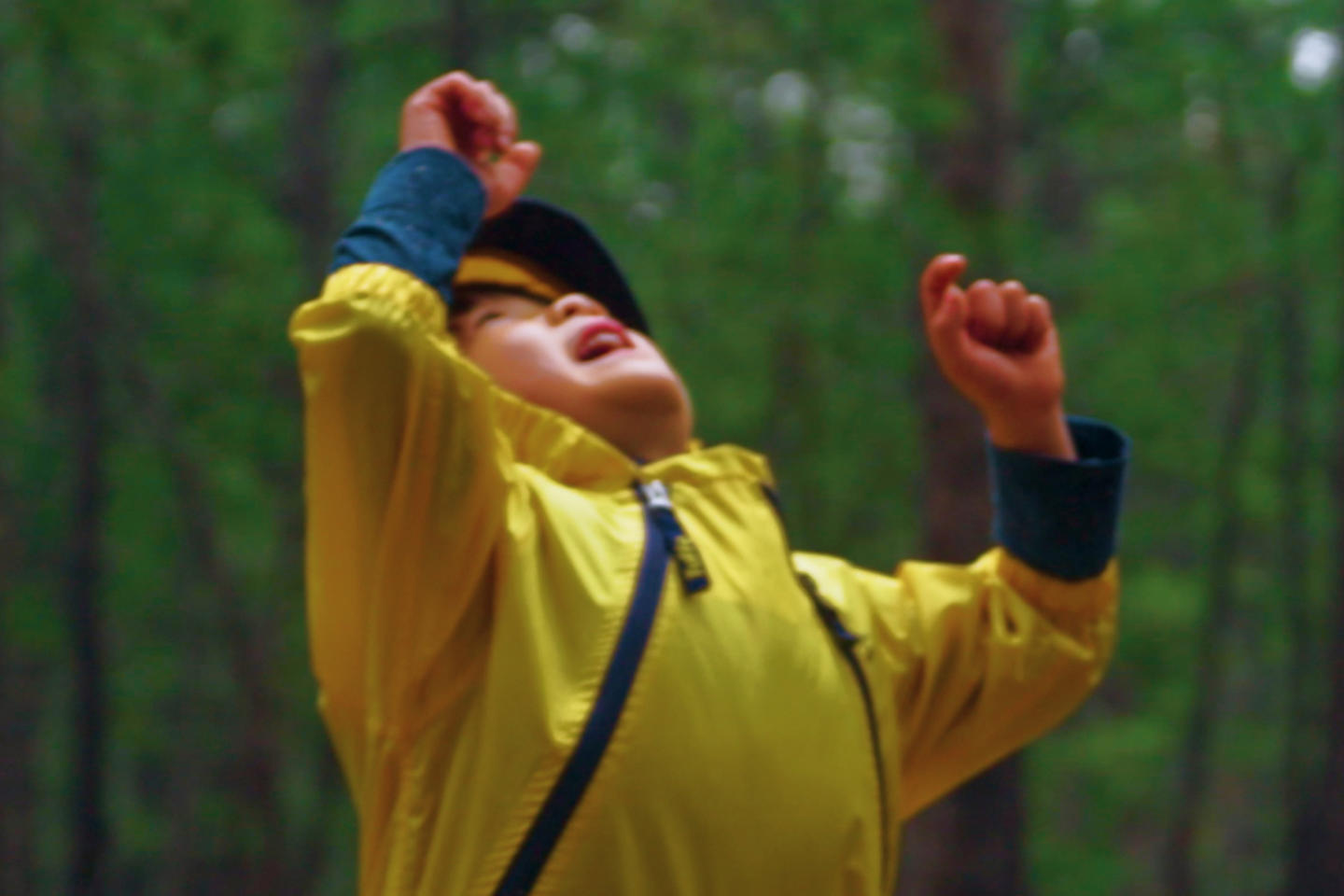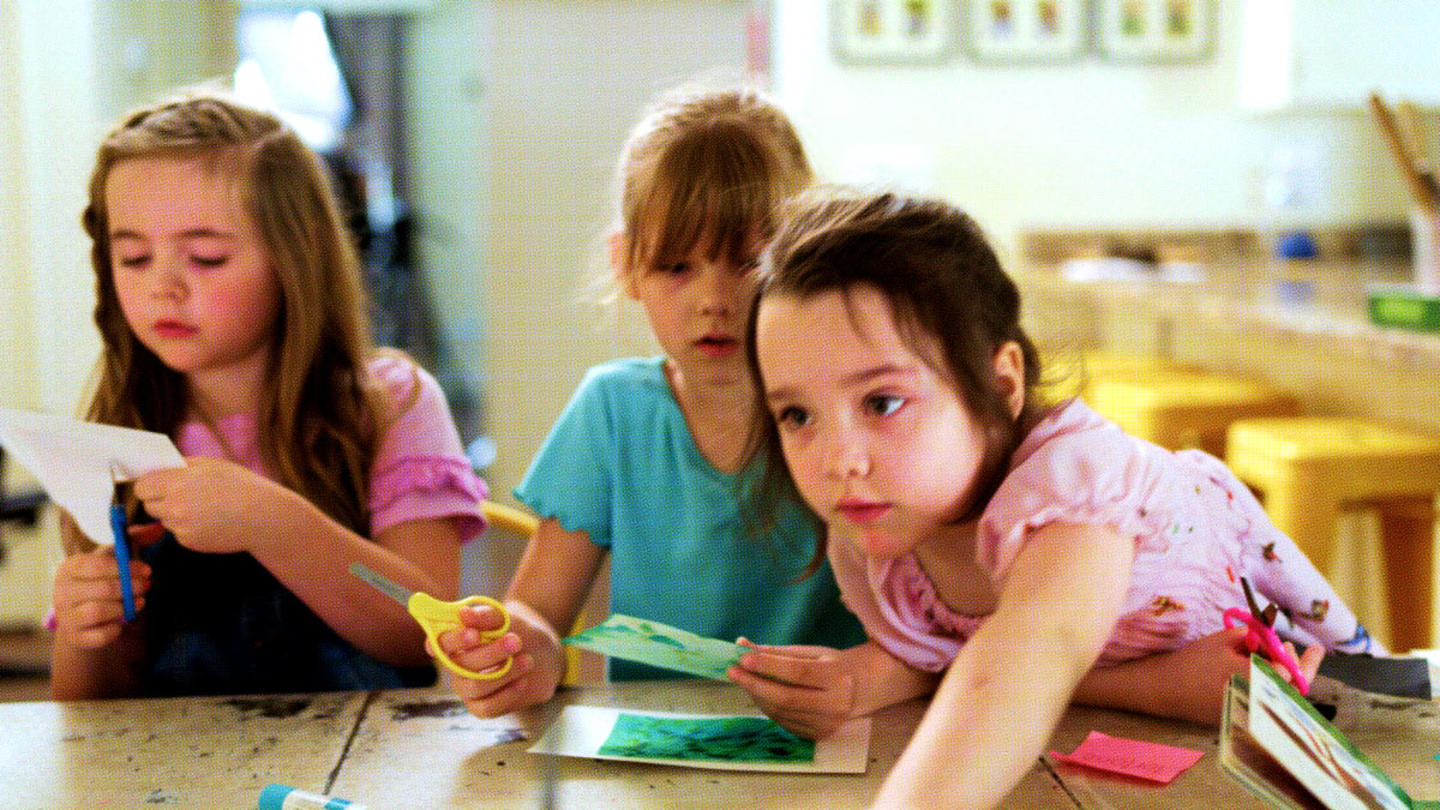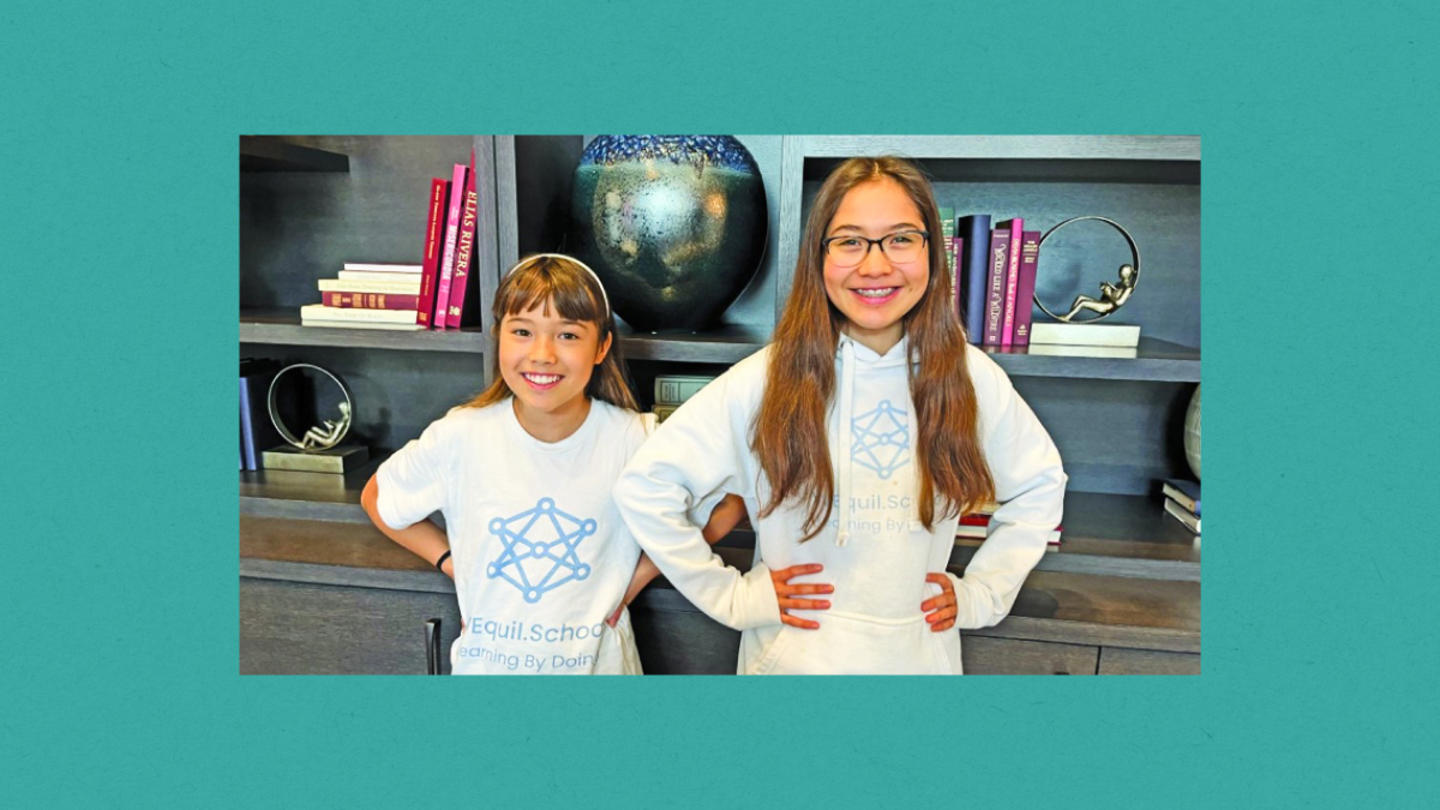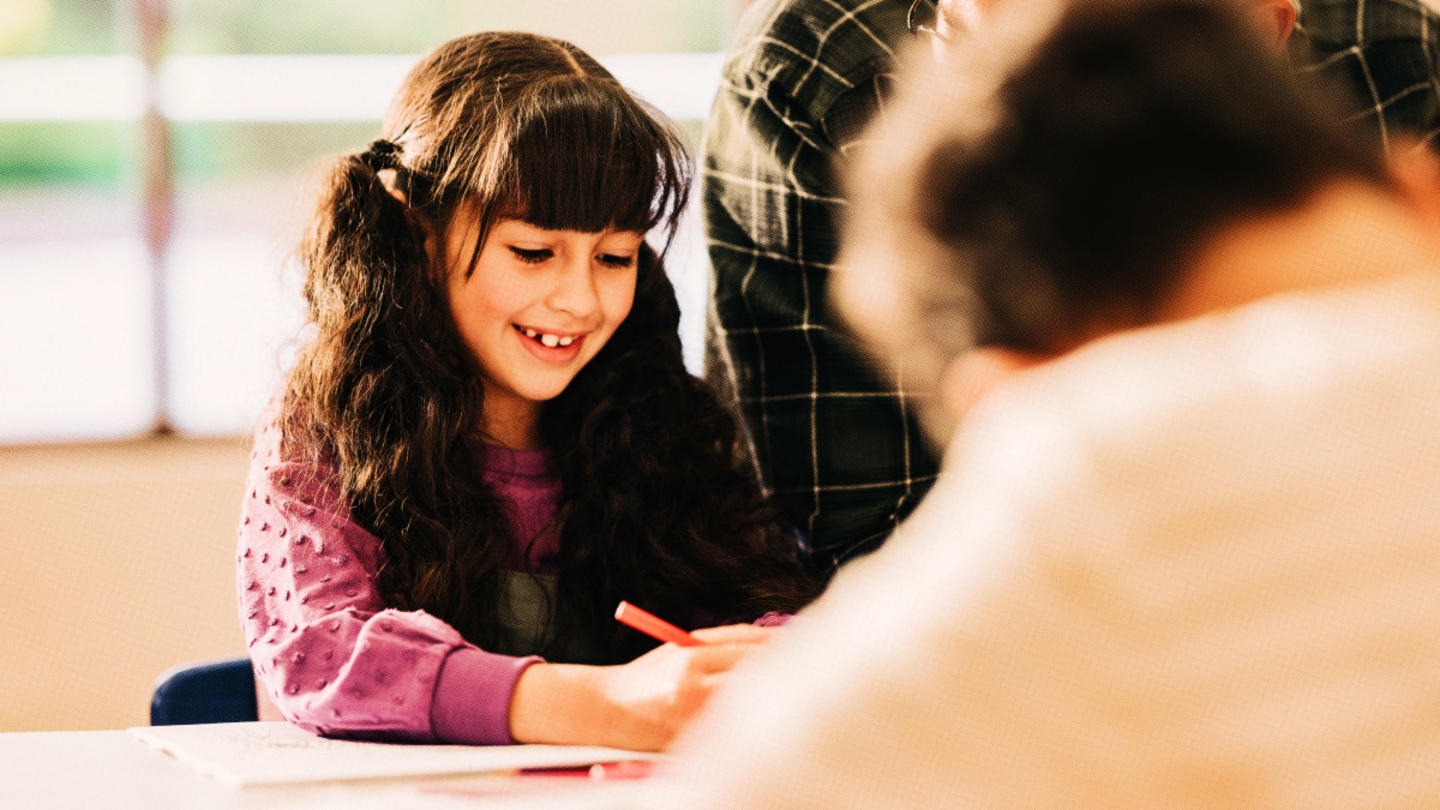What does a classroom need for kids to learn? Desks? Tablets? Walls? Tamara Wineland says no to all three.
"Nature is the classroom here," she says. "No blackboards. No desks. No fluorescent lighting."
Wineland is the founder of AdventureMe, an experiential forest school in the Colorado Rocky Mountains. AdventureMe serves pre-K students ages 3-5 and special needs students up to age 10. Classes are all outside in a forest setting where the children are given opportunities to explore and experience the outdoors based on what they are interested in.
The forest school model is having transformational results. It taps into children's natural curiosity about the world and allows them to develop in their own way, at their own pace, Wineland says. It gets rid of the restrictions found in conventional schools, literally.
"The latest research points to children only spending 10 minutes outside every day in free play — 10 minutes," Wineland says. "In conventional schools, time outdoors is the exception. In forest school, time outdoors is the rule. This unique environment helps children develop curiosity, creativity, resilience and a love of nature. But, the most surprising results have happened in our kids with special needs."
Wineland is one of the thousands of educators working to redefine what education can look like. AdventureMe is one of hundreds of forest schools, but it is the first school in the United States to be a part of the Therapeutic Forest Approved Practitioner Network. At AdventureMe, children with special needs receive integrated therapeutic support while they play and interact with their peers of all abilities.
Nature has therapeutic benefits
Conventional education can look fairly similar from school to school. But what does school look like if it's taken beyond the four walls of a classroom?
"I've loved the outdoors my entire life, and it's no surprise to me that the outdoors holds therapeutic benefits," says Wineland.
Her first son was born with a congenital heart defect with a high mortality rate at birth. When it was time for him to start school, Wineland was unsure if a conventional classroom would be good for his health. Instead, she found a forest school and enrolled him.
His overall health and well-being improved dramatically. Even his doctors noticed and wanted to know what he was doing differently. "It really just became more evident that being in nature was working," she says. "So I started researching all these new models of education, and that's how I stumbled on the forest school model."
AdventureMe sits on 10 acres of forested property. The school has areas for horses, ducks, and chickens. Wineland says they could have kept it to themselves, "but our program really blossomed once we opened the doors to the community."
At forest schools, play is learning
Wineland is refocusing education on children's natural curiosity and desire to learn about their environment.
"The literal definition of kindergarten is 'garden of children.' I think we've come pretty far from that," she says. "In a conventional classroom, you can have these experiences in a few feet of space that are very small and enough for two kids to play in, whereas when you're in the forest, everything is a learning opportunity."
Forest schools were first formed in the 1950s. According to Wineland, they all share one central idea: "Play is learning. Free play is kids exploring. They're pulling up stumps, they're looking for bugs, they're dumping things, their whole bodies are involved."
AdventureMe students grow in their own way, at their own pace
According to proponents of self-directed learning programs, conventional education risks overlooking the potential of certain kids, especially the ones that require extra therapy and care.
Rudy is a 4-year-old student at AdventureMe. He has Down syndrome. Rudy's mother, Monique says he gets bored easily. He is constantly seeking stimulation and new activities.
"AdventureMe is a great environment for that. The forest classroom has provided a lot of diversity in Rudy's education," says Wineland. "One day we're muddy, one day we're snowy, one day we're sunny. Every week it's different."
Traditional special education works for many kids, but being separated from their peers to receive support can be isolating. At AdventureMe, which has occupational and speech therapists on staff, therapy happens alongside the other kids.
"The therapies in forest school emerge out of what the children are doing," Wineland explains. "With Rudy, we can follow him to the sandbox because that's where he wants to go, and we can meet his goals there rather than trying to force him into what we think his goals should be for the day."
Monique appreciates this approach to her son's education. "Because Rudy is enjoying his time in this environment, in the forest, he is not feeling the pressure of needing to meet expectations or an agenda being put on him," she says. "He can grow the way he's supposed to, rather than the way somebody else thinks he's supposed to grow."
When Rudy first came to AdventureMe, he had communication challenges, and a very limited vocabulary. "He couldn't put words together in a sentence," says Wineland.
When the school's therapists work with Rudy outside, they help him tie his words with his activities, connecting the process of learning to his interests for the day.
"The outdoors gives a lot of space for kids to process what it is they are seeing or experiencing and allows them to make the connection between their thinking and their vocabulary," Wineland says. "We've seen some tremendous growth in the way [Rudy] pieces together sentences now. He can tell us what he needs. He can talk to peers. He can engage them in play. And it's just really fun to watch him."
Wineland and the therapists have also witnessed Rudy and the other kids getting physically stronger.
"The children are developing their own sense of adventure," says Wineland. "They set these challenges for themselves, whether it's getting to the first branch of a tree or jumping from one step to another. It's allowing for the scaffolding of a child to learn what their boundaries are at that moment."
Setting kids up to be lifelong learners
Today, over 10,000 kids are enrolled in nature schools across America supporting all kinds of learners. But what about those who don't have 10 acres in our backyard?
"Even if you live in a city, there's places you can go to experience just a little bit of nature," Wineland says.
Alternative schools like AdventureMe are showing many positive results. Their success points to a larger trend toward innovative learning models.
As Wineland puts it, "When kids meet their goals, the excitement and the level of confidence that you see in their faces, it sets kids up to be lifelong learners."
AdventureMe is supported by the VELA Education Fund, which as part of the Stand Together community supports everyday entrepreneurs who are boldly reimagining education.
Learn more about Stand Together's K-12 education efforts, and explore ways you can partner with us.




